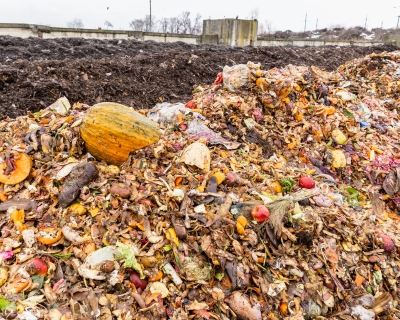
Environmental Health and Engineering
We use fundamental science to protect the health of the environment and its inhabitants.
Environmental Health & Engineering Headlines

The Fight for a Swimmable Harbor in Baltimore City
A look at how a coalition of activists, organizations, agencies, scientists, and residents came together to start restoring Baltimore’s iconic waterway.

Hopkins Engineers Unveil Sustainable Solution for Waste-to-Chemical Conversion
A team led by Hopkins engineers has developed a method to convert organic waste into crucial ingredients for industrial lubricants, bioplastics, food additives, and personal care products.

Study Confirms Coal Dust Presence in Baltimore's Curtis Bay, Raising Health Concerns
Johns Hopkins team says the study can be replicated by other heavily industrial neighborhoods.
Environmental Health & Engineering Highlights
#1
ranked by peers in Environmental Health Sciences - U.S. News & World Report
9
degrees offered, including 1 undergraduate, 6 master's, and 2 doctoral degrees
253
students, including 40 undergraduates, 104 master's students, 75 doctoral students, and 34 postdocs
2,200+
global alumni network working in industry, government, nonprofits, and academia
What We Do in the Department of Environmental Health and Engineering
Our unique cross-divisional department combines the strengths of the Whiting School of Engineering and the Bloomberg School of Public Health. Our graduates are prepared to be successful public health and engineering professionals in private and governmental organizations and attend the best graduate and PhD programs.
Environmental Health and Engineering Graduates: Where Are They Now?

Benjamin Eichelman, MHS ’23
Benjamin Eichelman graduated in 2023 with a Master of Health Science in Environmental Health, with a pre-med focus. He is currently a medical student at The George Washington School of Medicine and Health Sciences.

Alyssa Sooklal, BS '17
Alyssa Sooklal is a water resource engineer at civil engineering firm McCormick Taylor in Baltimore.

Chris Billak, BS '13, MS '20
Chris Billak is the Mid-Atlantic area manager for Spiniello Companies, which specializes in the replacement and rehabilitation of underground utility infrastructure. He oversees an organization of 250 employees, with $50 million in public and private projects each year.

Environmental Health and Engineering Programs
We offer undergraduate and graduate degrees in environmental engineering, as well as a range of master's and doctoral degrees in public health.
Undergraduate Programs
Our Bachelor of Science in Environmental Engineering prepares students to succeed in the private sector, governmental organizations, and top-tier graduate programs.
Graduate Programs
We offer a range of interdisciplinary graduate programs at the intersection of public health and engineering.
Non-Degree Programs
Our department offers certificates and other programs to foster professional growth.
Genee Smith, MSPH, PhD,
is passionate about using her training in environmental epidemiology exposure assessment and spatial analysis to promote environmental justice and alleviate placed-based health disparities.

Centers and Institutes in the Department of Environmental Health and Engineering
Center for Alternatives to Animal Testing (CAAT)
Johns Hopkins Center for a Livable Future (CLF)
Johns Hopkins Center for Health Security
Johns Hopkins Education and Research Center for Occupational Safety and Health
The Johns Hopkins POE Total Worker Health® Center (POE Center)
Center for Community Health: Addressing Regional Maryland Environmental Determinants of Disease (CHARMED)
Center for Climate-Smart Transportation (CCST)
Planetary Health Alliance
Upcoming Events
Support Our Department
A gift to our department can help to provide student scholarships and internships, attract and retain faculty, and support innovation.
